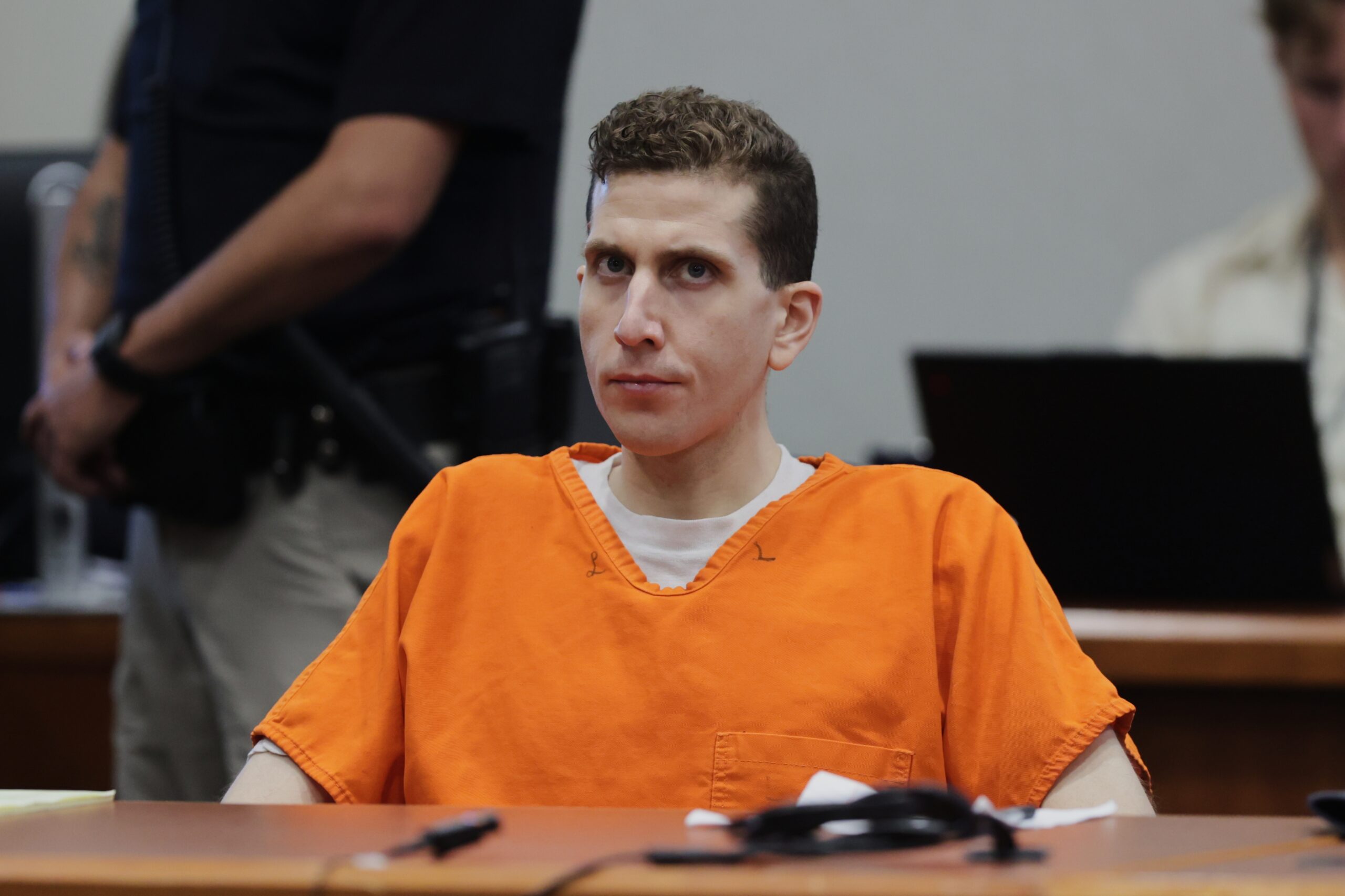Bryan Kohberger Ordered to Pay $3,000 for Urns of Murder Victims Kaylee Goncalves and Madison Mogen on Third Anniversary of Idaho Student Killings
On the somber third anniversary of the brutal stabbing deaths of four University of Idaho students, an Idaho judge has mandated that convicted killer Bryan Kohberger foot the bill for the cremation urns of two of his victims, adding a poignant layer to the families’ long quest for accountability. The ruling, handed down Thursday by Ada County District Judge Steven Hippler, requires Kohberger to pay approximately $3,000 to the families of Kaylee Goncalves and Madison Mogen—best friends and inseparable roommates whose ashes now rest in the very vessels the 30-year-old criminology Ph.D. student must reimburse.
Kohberger, who pleaded guilty in June 2025 to four counts of first-degree murder and one count of burglary for the November 13, 2022, rampage that shocked the sleepy college town of Moscow, Idaho, is already serving four consecutive life sentences without parole at the Idaho Maximum Security Institution south of Boise. The plea deal spared him the death penalty but included provisions for restitution, covering funeral expenses as part of a broader civil judgment of $20,000 per family. Prior orders slapped him with $31,964.67 in restitution to the families of the other victims, Ethan Chapin and Xana Kernodle, plus over $251,000 in criminal fines and fees—a tab his defense team argued he couldn’t possibly pay from behind bars.
The urn dispute arose last month when Latah County prosecutors sought an additional $27,000 from Kohberger to cover travel, hotel stays, and urn costs for the Goncalves and Mogen families, who had footed the bills out-of-pocket after the slayings. Defense attorney Elisa Massoth pushed back hard, contending that Idaho law excludes such non-funeral travel reimbursements and that Kohberger—languishing in solitary with no earning potential—lacked the means, especially after donations to his commissary account had dwindled post-plea. Prosecutors conceded the travel error, paring the request to just the $3,075.58 for the urns (slight variances in reports peg it at $3,007.79), but Hippler sided with the families, noting Kohberger’s jail fund had ballooned to nearly $29,000 from “several hundred donations,” mostly family top-ups for calls and commissary.
“Defendant argues that restitution for funeral expenses should not be ordered given his other financial obligations… and his inability to earn money,” Hippler wrote in his order, dismissing the plea by pointing to Kohberger’s potential future earnings—like prison jobs or even media deals—and the ample donations already in play. “That amount was nearly enough to cover the full restitution previously ordered,” the judge added, emphasizing that victims’ rights trump the killer’s fiscal woes under Idaho statute. The Goncalves family, vocal throughout the saga via their Justice for Kaylee Goncalves Facebook page, hailed the decision as a “small but meaningful step toward closure,” while Mogen’s relatives expressed quiet relief in a statement to local outlets.
The 2022 murders—Kohberger allegedly sneaking into the victims’ off-campus triplex around 4 a.m., methodically stabbing the four sleeping students with a Ka-Bar knife—unraveled a cross-country probe that nabbed him at his parents’ Pennsylvania home on December 30. Genetic genealogy from a Tanqueray gin bottle’s DNA trace, cellphone pings placing his white Hyundai Elantra near the scene, and a bloody glove at his family’s Albrightsville property sealed the case. The plea bypassed a summer 2026 trial, but not before Kohberger’s defense floated wild theories—from a “framed” narrative to claims of his innocence—drawing national scorn and true-crime binges.
Legal observers see the urn ruling as a procedural coda in a case that redefined campus safety protocols. “It’s a reminder that justice isn’t just incarceration—it’s making the perpetrator shoulder even the intimate costs of their horror,” says criminology professor Dr. Emily Hargrove at Washington State University, where Kohberger studied. She notes the decision aligns with Idaho’s Victim Compensation Act, which prioritizes direct losses like burial over indirect ones, but flags potential appeals: “Kohberger’s team could argue undue hardship, but with that donation slush fund, it’s a tough sell.” Public reaction on X has been a torrent of vindication and vitriol, with #JusticeForKaylee spiking 300% Thursday; one viral thread from a Moscow alum read, “Three years, and he’s still paying the price—urns today, karma forever.” Families marked the date with vigils: Chapin’s parents lit candles at the frat house site, while Goncalves’ siblings released balloons etched with “Forever 21,” Mogen’s age.
For American families, the Kohberger saga’s fresh twist underscores the raw economics of grief—funeral costs averaging $9,000 nationwide, per NFDA, often uninsulated in youth tragedies. In Idaho’s rural pockets, where median incomes hover at $65,000, such burdens crush; the ruling spotlights restitution’s role in easing them, potentially influencing states like Pennsylvania (Kohberger’s home turf) amid rising campus crime probes. Economically, it ties into the $100 million true-crime industry, where Netflix’s “Murder in Moscow” docuseries (streaming now) funnels ad revenue toward victim funds, while Kohberger’s own “supporter” donations—ironically sourced from gawkers—now redirect to healing.
Lifestyle scars linger: Moscow’s off-campus rentals, once $800/month havens, now command $1,200 with Ring cams mandatory; UIdaho’s enrollment dipped 5% post-murders but rebounded with beefed-up shuttle services and self-defense seminars. Tech’s double-edged: The case’s DNA sleuthing advanced consumer kits like 23andMe’s law enforcement opt-outs, but sparked privacy bills in Congress. Sports? Vandal football games, once tailgate utopias, now host purple-clad memorials for Chapin, the 20-year-old Beta Theta Pi pledge.
As Kohberger’s ledger swells—totaling over $300,000 in liabilities—the urn order closes a fiscal loop on a nightmare that began with four futures snuffed in the dark. Families vow to channel payments into scholarships: Goncalves’ for journalism hopefuls, Mogen’s for marketing majors. Hippler’s gavel ensures the dead aren’t forgotten in ledgers, their ashes a final claim on the man who stole their light. In Moscow’s quiet dawn, justice whispers: Restitution isn’t revenge—it’s reckoning.
By Mark Smith
Follow and subscribe for true crime updates and victim advocacy spotlights—enable push notifications to honor the fight for closure!
